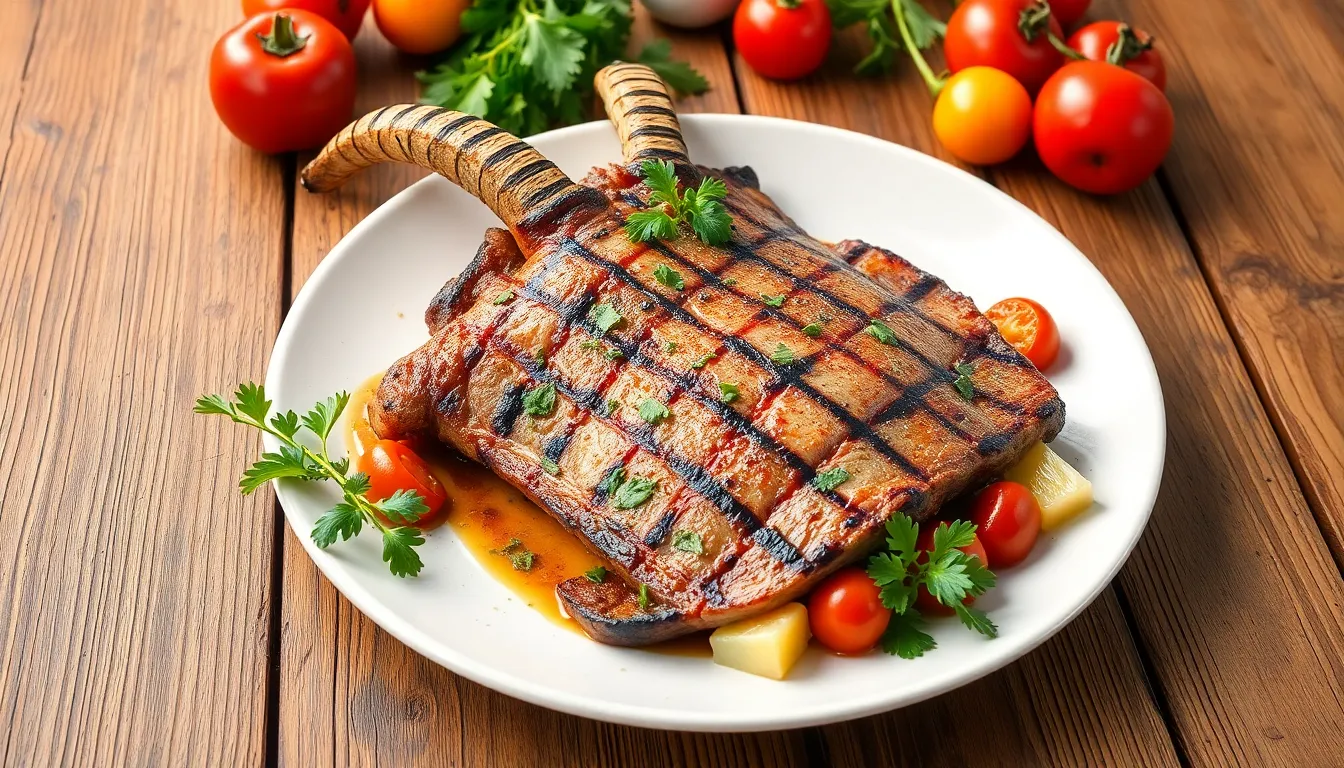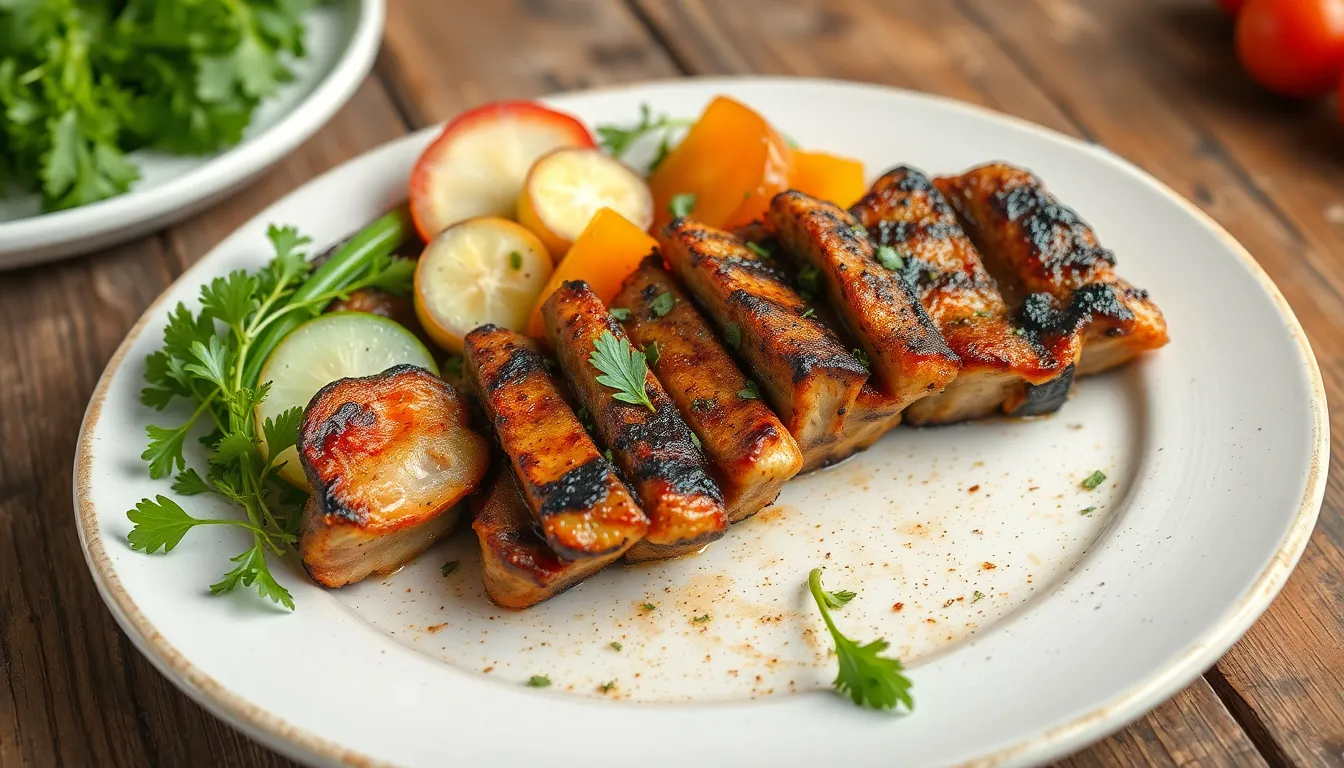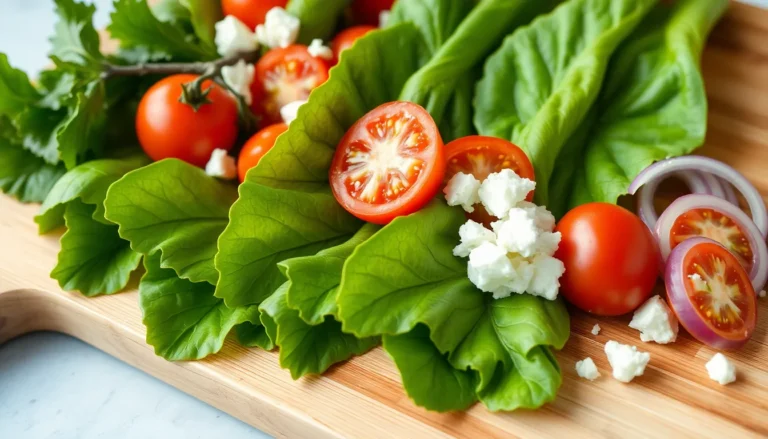
Goat Meat Nutrition: The Underrated Superfood You Need to Try for a Healthier Lifestyle
When it comes to meat, goat might not be the first thing that pops into mind. But this underdog of the culinary world is ready to steal the spotlight and your taste buds. Packed with nutrients and a flavor that’s simply unforgettable, goat meat is like that friend who shows up to the party with the best snacks—everyone loves them, but not enough people know about them.
Goat Meat Nutrition
Goat meat stands out as a nutritious and lean protein source that often goes unnoticed. This section explores its nutritional profile and key nutrients that contribute to its health benefits.
Nutritional Profile
Goat meat contains approximately 122 calories per 100 grams. This lean meat features about 25 grams of protein, making it an excellent choice for muscle repair and growth. The fat content is relatively low, with around 2.5 grams of fat per serving, which aids in maintaining a healthy weight. Iron levels are significant, providing nearly 3.5 milligrams, supporting oxygen transport in the body. Vitamin B12 content also merits attention, offering around 2.8 micrograms per serving, essential for nerve function and red blood cell formation.
Key Nutrients In Goat Meat
Protein serves as a major building block, promoting tissue health and immune function. Selenium plays a crucial role in antioxidant defense, helping combat cellular damage. Zinc supports immune system functioning and wound healing, with goat meat providing around 4 milligrams per serving. B vitamins, including B6, contribute to energy metabolism, enhancing overall wellness. Additionally, potassium helps regulate blood pressure, with goat meat containing approximately 340 milligrams per 100 grams. These nutrients combined showcase goat meat as a potent option for anyone seeking a wholesome diet.
Health Benefits Of Goat Meat


Goat meat offers several health benefits, making it a valuable addition to many diets. Its nutritional profile supports various aspects of health.
High-Quality Protein Source
It provides a high-quality protein source that contains about 25 grams of protein per 100 grams. This concentration supports muscle repair and growth effectively. Individuals seeking to build muscle or maintain a healthy diet find goat meat especially beneficial. Proteins help in tissue regeneration, and goat meat contributes to overall physical performance. Additional amino acids in goat meat enhance recovery after exercise, improving athletic performance.
Lower Fat Content Compared To Other Meats
Goat meat contains roughly 2.5 grams of fat per serving, making it leaner than common meats like beef or pork. Lower fat content promotes healthy weight maintenance and may reduce the risk of heart disease. Individuals seeking to cut down on dietary fat appreciate the nutritional advantages of goat meat. Its lean nature doesn’t compromise flavor, offering a satisfying alternative that supports healthier eating habits. Overall, goat meat serves as a nutritious option without excessive calories or unhealthy fats.
Goat Meat In Different Cuisines
Goat meat appears in numerous cuisines, reflecting its diverse culinary use worldwide. Various cultures prepare it in unique ways, highlighting regional flavors.
Traditional Dishes Featuring Goat Meat
Many traditional dishes celebrate goat meat’s rich flavor. A popular example is goat curry, common in Indian and Caribbean cuisines, where spices elevate its taste. North African tagines incorporate goat meat, slow-cooking it with vegetables and spices, enhancing the dish. In the Middle East, dishes like mutton kebabs feature ground goat meat grilled to perfection. West African stews utilize goat, combining it with tomatoes and peppers for a hearty meal. Each dish showcases goat meat as a versatile ingredient, suitable for various cooking methods and flavor profiles.
Cultural Significance And Preferences
Cultural significance surrounds goat meat in numerous societies. In many African cultures, goat meat symbolizes celebration, often featured during festivals and gatherings. Communities in South Asia consider goat meat a staple, enjoying it in daily meals. Preference for goat over other meats often lies in its lean profile and distinct taste. Various religious practices also influence the consumption of goat meat, with it frequently appearing in traditional dishes during celebrations. As a result, goat meat serves not only as sustenance but also as a key element in cultural identity and heritage.
Ethical Considerations
Ethical considerations in goat meat production play a crucial role in its nutritional value and the environmental impact. Sustainable farming practices and animal welfare shape the quality of goat meat and its acceptance in various cultures.
Sustainable Farming Practices
Sustainable farming practices significantly affect the environmental footprint of goat meat production. They enhance soil health, promote biodiversity, and reduce resource consumption. Rotational grazing methods support pasture regeneration, allowing goats to thrive while minimizing overgrazing. Goats typically graze on weeds and brush, which aids in natural land management. Integrating agroforestry practices emphasizes the coexistence of trees and livestock, providing shade and improving animal welfare. Implementing these sustainable approaches ensures goat meat provides not only nutritional benefits but also supports a healthier ecosystem.
Animal Welfare In Goat Farming
Animal welfare in goat farming directly impacts the quality of meat produced. Prioritizing humane treatment emphasizes the need for proper housing, nutrition, and veterinary care. Goats thrive when housed in clean, spacious environments conducive to natural behaviors. Regular health checks prevent disease and ensure quick interventions when needed. Stress-free handling techniques during transport and slaughter enhance meat quality and flavor. Focusing on animal welfare leads to high-quality goat meat while addressing ethical concerns among consumers.



